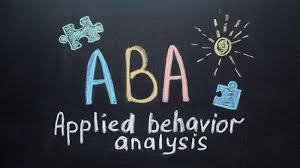Tennessee: "Informal removal" of disabled students denies them an education
- May 23, 2025
- 3 min read
May 22, 2025, WBIR, Knoxville, TN: Informal removals of students with disabilities raise concerns across Tennessee
A new report finds that across the state, educators are removing students with disabilities from the classroom without recording it. Here's why that matters.
As students across East Tennessee wrap up the school year, many families of students with disabilities are meeting with educators to discuss how to support their children moving forward.
However, a recent report from the Tennessee Comptroller’s Office of Research and Educational Accountability (OREA) highlights that not all removals of students from classrooms are being documented, raising questions about how these students are being supported.
These instances, known as “informal removals,” happen when students with disabilities are sent home during the school day due to behavioral issues, but the removal is not recorded as a suspension or expulsion. Without documentation, families miss key protections under special education law.
“It was both concerning because we were removing these kids from the learning environment,” said Jeff Strand, a former special education teacher. “But also I watched as it didn’t accomplish anything. It removed the child, it didn’t solve any problems and we just kicked the can down the line and that’s not how you help these kids be successful.” . . . .
"A formal removal might be something like a suspension or an expulsion," Strand detailed. "It's things that are recorded in the official record keeping documents, and that's especially important for kids with disabilities who have an IEP. There are certain components of the law that entitle them to certain due processes when they achieve a certain number of removals.
An informal removal, on the other hand, is the taking of a kid out of a learning environment without recording it as a removal, and so it denies a student with a disability, a student with an IEP [individualized education plan], the opportunity for those due process, you know, kind of problem-solving activities that are inherent in the special ed law."
The OREA report found that informal removals are commonly used across the state.
"Once we understand the extent of this issue and some of its underlying causes, then we can kind of take some action on it. And so OREA, the Office of Research and Educational Accountability, studied it for over a year," Strand said. "And I know that according to the report, they went out and spoke to dozens of teachers, administrators, special education professionals about their use of this, and they determined what we anecdotally know to be true is that these are informal by nature and thus they're not being recorded."
While ultimately Strand says this is harmful to students, it often comes out of misunderstanding.
"In a lot of cases, schools, teachers, admins, they think they're protecting this kid," Strand shared. "Teachers don’t know how to work with this population and they tell us so. There’s a good chunk of both general and special ed teachers who don’t get any training on working with students with behavior needs.”. . .
Helping other students avoid feeling this way is why Rebecca works to advocate for further education and training for all educators at schools across the country. Similarly, Strand believes a solution to this problem lies in increased training, resources and a shift in mindset.
“One of the policy plans that we have is to work with the state Board of Education and the General Assembly to develop a more comprehensive system of training to work with these students,” Strand said. “We need specialized special ed teachers. We need to get really deep into what is going on with these kids.”
He also emphasized the need for more school psychologists, counselors, social workers and paraprofessionals. . . .
Strand said that change includes viewing students with behavioral needs not as problems to be removed, but as learners to be supported.
“These are not hopeless kids, they’re not lost. We don’t need to exclude them from our schools,” Strand shared. “We need to help them, and there are ways that we can help them and we believe in them.”
Rebecca agrees.
“They need the education just like everybody else,” she said. “All this time, [Thomas] has not been getting his full education, and it’s too difficult for a child who’s already behind to get caught up.”
Strand said he’s hopeful that Tennessee can lead the way in solving this issue.
“I really do believe in the capacity of our state and our state Department of Education to be the first in the country to fix this problem,” he said. “It’ll take some investment. It’ll take some stick-to-itiveness, and some willingness to accept pushback because there is that attitudinal change that needs to happen. But Tennessee can and should lead the way in this.”





Comments